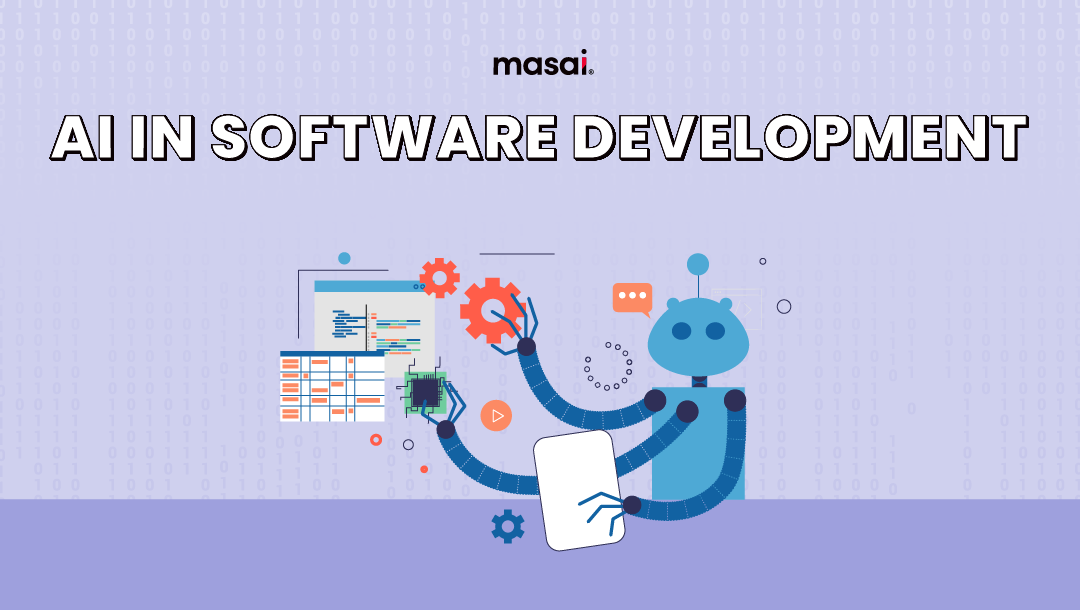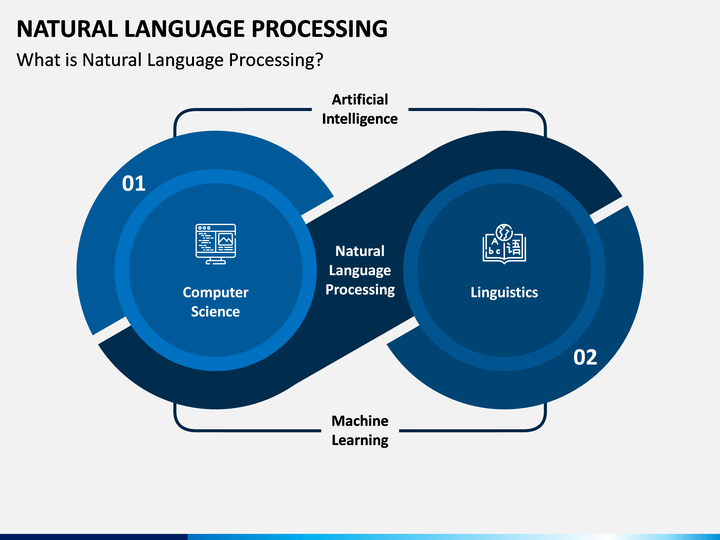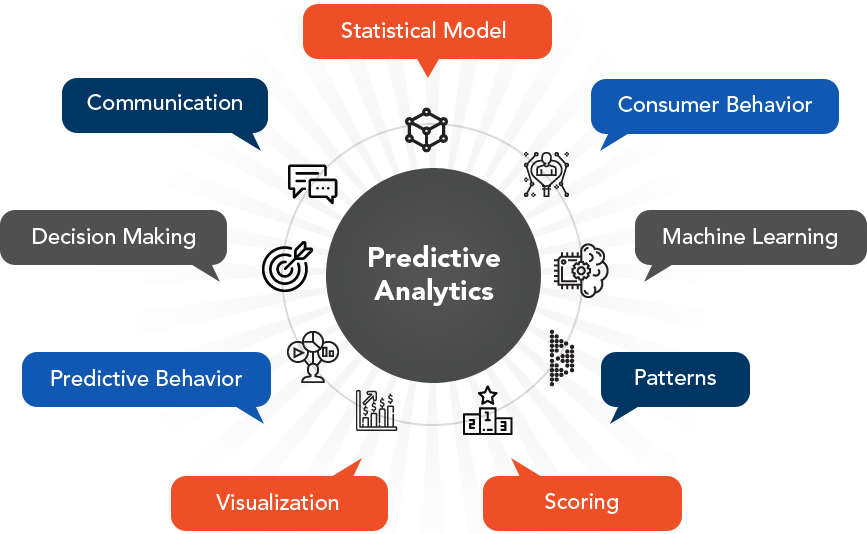Unleashing the Future: How AI is Transforming Software Development
A study by McKinsey found that organizations that leverage AI can experience a 30-50% reduction in software development costs and a 20-30% reduction in development time.

From automated code generation to bug detection and performance optimization, Artificial Intelligence (AI) is revolutionizing the world of software development. With its ability to enhance productivity, accelerate development timelines, and improve code quality, it is changing the way software is built.
But it's not all smooth sailing - ethical concerns and potential biases in algorithms also pose challenges to this rocket-speed development.
So, what does the future hold? How is it going to impact the tech workforce? And how will professionals stay relevant? Join us on a thrilling journey as we explore the practical applications, benefits, limitations, and future prospects of artificial intelligence in software development.
Introduction
There's no denying that AI has established its foot in the software industry. And it's only going to spread its wings further in the future.
"The future of software development will be deeply influenced by AI, with the potential to disrupt traditional development practices and unlock new levels of efficiency and innovation." - Andrew Ng, AI Researcher and Co-founder of Coursera.
Here are some data and results that further validates this point:
- According to a report by Grand View Research, the global AI in software development market size was valued at USD 136.55 billion in 2022 and is expected to grow at a compound annual growth rate (CAGR) of 37.3% from 2023 to 2030. (Source)
- The use of AI-powered tools such as natural language processing, machine learning, and computer vision in software development has led to significant improvements in efficiency and quality. For example, a study by Accenture found that AI-powered testing reduced testing time by up to 80% and increased test coverage by up to 50%.
- The rise of AI in software development has also led to the emergence of new job roles such as AI engineers and data scientists. For AI engineers, there is an expected job growth of 21 %between 2021 and 2031, much faster than the average for all occupations (5%)
Now, let’s look at the numerous ways in which AI impacts the software development field:
How AI impacts software development
Automation
One of the significant impacts of AI on software development is automation. AI-powered tools can automate repetitive and time-consuming tasks, such as testing, debugging, and code analysis. This automation can lead to faster development cycles and reduce the chances of human error, resulting in more reliable and efficient software products.
Here are some examples of how AI is being used for automation in software development:
Automated Code Generation
AI-powered tools can generate code snippets or even entire programs based on predefined templates, algorithms, and patterns. These tools use machine learning algorithms to analyze large datasets of existing code to generate new code that is syntactically and semantically correct. This can significantly speed up the development process, especially for repetitive tasks, and can also help bridge the skill gap by enabling less experienced developers to create complex code.
Machine Learning is also beneficial in automating the testing of code and can be used to enhance security of certain applications.
Natural language processing
Through natural language processing, AI has made the creation of chatbots, virtual assistants, and voice-activated devices possible.

AI-powered NLP technologies, such as ChatGPT, can be used to automatically generate and optimize software documentation. These tools can analyze natural language queries, user feedback, and other sources of information to generate accurate and relevant documentation for software libraries, APIs, and other technical resources.
With the introduction of Deep Learning, which is basically a neural network with three layers or more, the ability of these neural networks to simulate the human brain has only skyrocketed. NLP has made significant strides in recent years and promises to be AI’s key research domain.
Automated Testing and Quality Assurance
AI-powered tools can automatically generate and execute test cases, simulate user interactions, and perform other quality assurance tasks. These tools use machine learning algorithms to learn from past testing data, identify potential issues, and generate test cases that cover a wide range of scenarios. This can help improve the quality of software releases, reduce the risk of introducing new bugs, and enhance overall software reliability. For example, tools like Applitools and Mabl use AI to perform visual testing of web applications.
Debugging
AI can also be used to automate the process of debugging software. AI-powered debugging tools can analyze code and identify potential issues, allowing developers to quickly fix bugs and improve the overall quality of their software. They can also automatically generate patches or fixes for identified bugs, saving developers time and effort in debugging and troubleshooting. For example, tools like Rookout and Undo use AI to provide real-time debugging capabilities.
Predictive Analytics and Data-Driven Development
AI can be used to analyze large datasets of software development data, such as code repositories, version control systems, and project management tools, to provide insights and predictions that can inform development decisions. AI can predict software defects, estimate development timelines, identify patterns of successful code integration, and recommend optimal development workflows. These insights can help developers make data-driven decisions and optimize their development processes for better outcomes.

For example, Google's TensorFlow and Microsoft's Azure Machine Learning Studio are popular tools for predictive analytics in software development.
Decision making
Another significant impact of AI on software development is in decision-making. For example, AI can help in identifying patterns in user behavior to improve the user experience of a software application.
Here are some examples of how companies and products have benefited from AI-powered decision-making:
Netflix: The company analyzes user data to identify patterns and make predictions about what users are likely to enjoy watching. This has been instrumental in the company's success, as personalized recommendations have helped it retain subscribers and grow its user base.
Amazon: Amazon uses AI to optimize its supply chain and make more informed decisions about inventory management. The company analyzes data from its warehouses and transportation network to identify areas where it can improve efficiency and reduce costs. This has helped the company streamline its operations and increase profitability.
Salesforce: Salesforce uses AI to help sales teams make more informed decisions about which leads to pursue. The company's Einstein AI platform analyzes data from a range of sources, including social media and customer interactions, to identify the most promising leads. This has helped sales teams close more deals and improve their overall performance.
Google: Google uses AI to make decisions about which search results to display to its users. The company's algorithms analyze a range of factors, including user behavior and content quality, to determine which results are most relevant to a user's query. This has helped Google maintain its position as the world's most popular search engine.
Build more efficient software
AI is also helping developers in building more efficient software. For instance, AI can optimize code for performance and efficiency, making software faster and less resource-intensive. Additionally, AI-powered algorithms can help in identifying vulnerabilities in software, leading to more secure applications.
Here are some examples and case studies that illustrate this point:
Google: Google has been using machine learning to optimize the energy consumption of its data centers. By analyzing data from sensors and other sources, the company has been able to make more efficient use of its resources and reduce its energy consumption by up to 40%.
Microsoft: Microsoft has been using AI to optimize the performance of its Windows operating system. The company's AI-powered tool, called "Project InnerEye," analyzes medical images to help doctors diagnose and treat cancer. The same technology is also used to optimize the performance of Windows, making it faster and more efficient.
Tesla: Tesla has been using AI to optimize the performance of its electric vehicles. The company's Autopilot system uses AI to analyze data from sensors and cameras to improve the efficiency and safety of its vehicles. The system also helps drivers navigate through traffic and avoid accidents.
After the wide-ranging impact that we just discussed, let’s look at a few out-and-out benefits that AI integration can have on the industry:
Benefits of AI in Software Development
Enhanced Productivity
AI-powered tools can automate repetitive and time-consuming tasks in software development, such as code generation, code review, bug detection, and testing. This can free up developers' time and allow them to focus on more complex and creative aspects of software development, thereby enhancing their productivity.
Reduced Costs
Incorporating AI in software development practices can lead to cost savings in various ways. By automating repetitive tasks, AI can reduce the time and effort spent on manual tasks, leading to cost savings in terms of labor. Additionally, AI can help reduce the costs associated with software defects and vulnerabilities by automatically detecting and fixing them early in the development process, before they make their way into production. This can save organizations the costs of post-production bug fixes, security breaches, and customer complaints.
Moreover, by optimizing development workflows and timelines, AI can help organizations reduce the time-to-market for their software products, potentially resulting in increased revenue and market share.
Case in point, a study by McKinsey found that organizations that leverage AI in their development processes can experience a 30-50% reduction in software development costs and a 20-30% reduction in development time.
However as we mentioned in the beginning, it’s not all smooth sailing. There are a few roadblocks that need to be kept in mind before jumping to conclusions and handing over the future to AI.
Challenges and Limitations of AI
Ethical Concerns
One of the main challenges of using AI in software development is the ethical implications. AI algorithms can potentially make decisions or generate code that may raise ethical concerns, such as bias, fairness, accountability, and transparency. For example, an AI-powered code review tool may unintentionally favor certain coding styles or programming languages over others, leading to biased recommendations.
Another example could be an AI-powered code generation tool that inadvertently generates code with security vulnerabilities or violates data privacy regulations. Ethical concerns related to AI in software development require careful consideration to ensure that the technology is used responsibly and in compliance with legal and ethical standards.
Moreover, AI systems can also be potentially subject to misuse, manipulation or even attacks. Some cyber attacks are carried out by infiltrating AI models by introducing slight alterations to the input data. Hence, ensuring the robustness and integrity of AI systems becomes even more critical, especially in budding fields such as self-driving vehicles or autonomous vehicles, cybersecurity and healthcare.
Potential Bias in AI Algorithms
AI algorithms are trained on large datasets, which may inadvertently introduce biases if the data used for training is not diverse or representative. This can result in biased recommendations or decisions by AI-powered tools in software development. Addressing bias in AI algorithms requires rigorous data preprocessing, training, and validation techniques to ensure that the algorithms are not perpetuating or amplifying existing biases.
Need for Human Expertise
While AI can automate many repetitive tasks in software development, human expertise is still crucial for decision-making, creativity, and critical thinking. Software development requires problem-solving skills, domain knowledge, and an understanding of business requirements, which are areas where human intelligence excels. Human developers bring their experience, intuition, and judgment to the table, which cannot be replicated by AI.
One real-life example that highlights the need for human intelligence in software development is the case of the "AI-generated code" experiment by GitHub. In 2020, GitHub released an experiment where they trained a language model to generate code. While the generated code was interesting and showed potential, it was not production-ready and often contained errors, vulnerabilities, or violated best practices. This experiment highlighted that while AI can generate code snippets or provide suggestions, human expertise is still critical for reviewing and validating the code, ensuring its quality, security, and compliance with coding standards.
Moreover, software development also involves collaboration, communication, and teamwork, which are essential skills that humans possess and are not easily replaceable by AI.
Human-Machine Partnership and Displacement in Jobs
The impact of AI on manpower is a matter of grave concern. While AI has a proven track record of being extremely efficient in automating repetitive tasks in addition to augmenting human capabilities, this will lead to job scarcity and large-scale economic disruption. By ensuring that we transition into the 4th Phase of the Industrial Revolution smoothly, we can develop new job roles that work hand-in-hand with AI systems and achieve better employment rates as well as have a productive workforce.
Legal and Regulatory Frameworks
The fast rise of AI also raises many legal and regulatory challenges. One of the most significant ones being, determining liability in case of AI-caused mishaps. In simple words, fixing accountability. Economies around the world will need to design new, robust legal frameworks to check the rapidly growing AI to ensure its safe development and implementation.
How can companies tackle these challenges?
To mitigate these challenges and maximize the benefits of AI in software development, organizations can take several steps, such as:
- Ensuring diverse and representative training data for AI algorithms to minimize bias.
- Incorporating ethical considerations in the development and deployment of AI-powered tools, such as regular audits and reviews for fairness, transparency, and accountability.
- Encouraging collaboration between AI and human developers, where AI tools augment human intelligence and decision-making rather than replacing it.
- Providing ongoing training and education to developers to enhance their understanding of AI and its limitations, ethical implications, and best practices in using AI-powered tools.
What does the future look like for AI in Software Development?
Artificial Intelligence is expected to play a significant role in the future of software development, with increased adoption across the industry.
Advancements in AI Techniques
AI is a rapidly evolving field, and advancements in AI techniques, such as deep learning, reinforcement learning, and natural language processing, are expected to further enhance the capabilities of AI in software development. These advancements may lead to more sophisticated AI-powered tools that can understand and interpret complex code, provide more accurate suggestions and recommendations, and even assist in higher-level tasks such as architecture design or system optimization. (And we can already get a sense of its capabilities with the recently launched GPT-4)
Impact on Job Roles
The increasing adoption of AI in software development may also impact job roles in the industry. For example, manual code review tasks may be automated by AI-based code review tools, which could affect the demand for traditional code reviewers.
However, new opportunities may arise in the form of developing, maintaining, and improving AI-powered tools, as well as leveraging AI for more strategic and higher-level tasks in software development.
How can developers stay relevant in the age of AI?
To stay relevant in the era of AI, software development professionals can incorporate the following steps:
Embrace lifelong learning: This can include staying updated with the latest AI trends and technologies, understanding how AI is being used in software development, and acquiring new skills to effectively collaborate with AI-powered tools.
Establish domain expertise: Deepening domain expertise in software development can be a valuable asset in the era of AI. Professionals can focus on mastering specific programming languages, frameworks, or methodologies, as well as gaining an in-depth understanding of software development best practices, design patterns, and architectures. This can help professionals provide valuable insights and judgment to complement the capabilities of AI-powered tools.
Emphasize Creativity and Critical Thinking: While AI can automate certain tasks, creativity, and critical thinking are areas where human intelligence excels. Professionals can hone their skills in problem-solving, innovation, and critical analysis, which are important for higher-level tasks that require strategic decision-making, system design, and problem-solving beyond the capabilities of AI.
Stay Agile and Adaptive: The field of AI is rapidly evolving, and professionals need to stay agile and adaptive to changes. This can include being open to new technologies, methodologies, and tools, as well as actively participating in industry events, conferences, and communities to stay updated with the latest trends and opportunities.
Foster Collaboration with AI: Instead of viewing AI as a threat, professionals can embrace it as a tool that augments their work. Collaborating with AI-powered tools can lead to more efficient and effective software development processes. Professionals can actively engage with AI-powered tools, provide feedback, and work in tandem with them to achieve better results.
Wrap Up
As we peer into the future, it's clear that AI is reshaping the landscape of software development. So, let's embrace the potential of AI, adapt and evolve according to the changing landscape, and continue to innovate in the exciting world of software development.
Collaborative efforts between governments, industries, and academia can pave the way for responsible AI development, ensuring that AI serves as a tool to enhance humanity's progress rather than being a threat to its existence.
As developed as AI may be, it still needs human intervention from time to time to ensure its effectiveness. Instead of dreading its onslaught, we must learn to integrate it into our work models thereby maximizing our potential and increasing our rate of productivity. Having observed several paradigm shifts in the economy and labourforce ever since the First Industrial Revolution, experts are of the opinion that humans shouldn’t feel threatened about AI taking away their jobs.
As for us humans, it's important to note that AI won’t replace us, other humans who know AI will.
Cheers!
FAQ's
How AI is changing software development?
Since AI relies on machine level language, it can not only generate codes but also help in debugging and testing. AI can also help automate mechanical or repetitive tasks, increasing work productivity for software engineers who would have otherwise required to put in several weeks of effort.
Will AI replace software testers?
No, AI will certainly not replace software testers, although it will definitely enhance productivity amongst debuggers.

